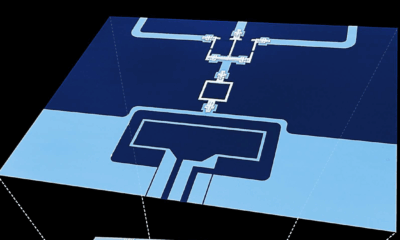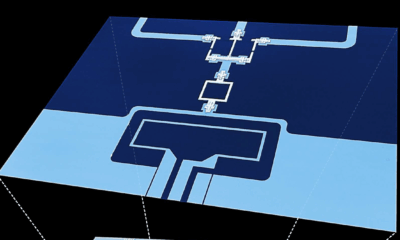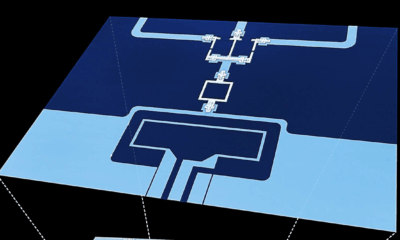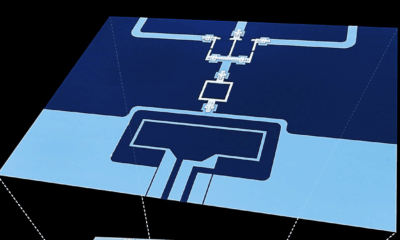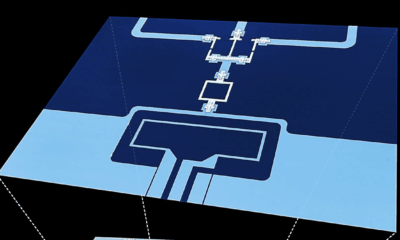Science
Nobel Prize in Physics Honors Pioneers of Quantum Technology
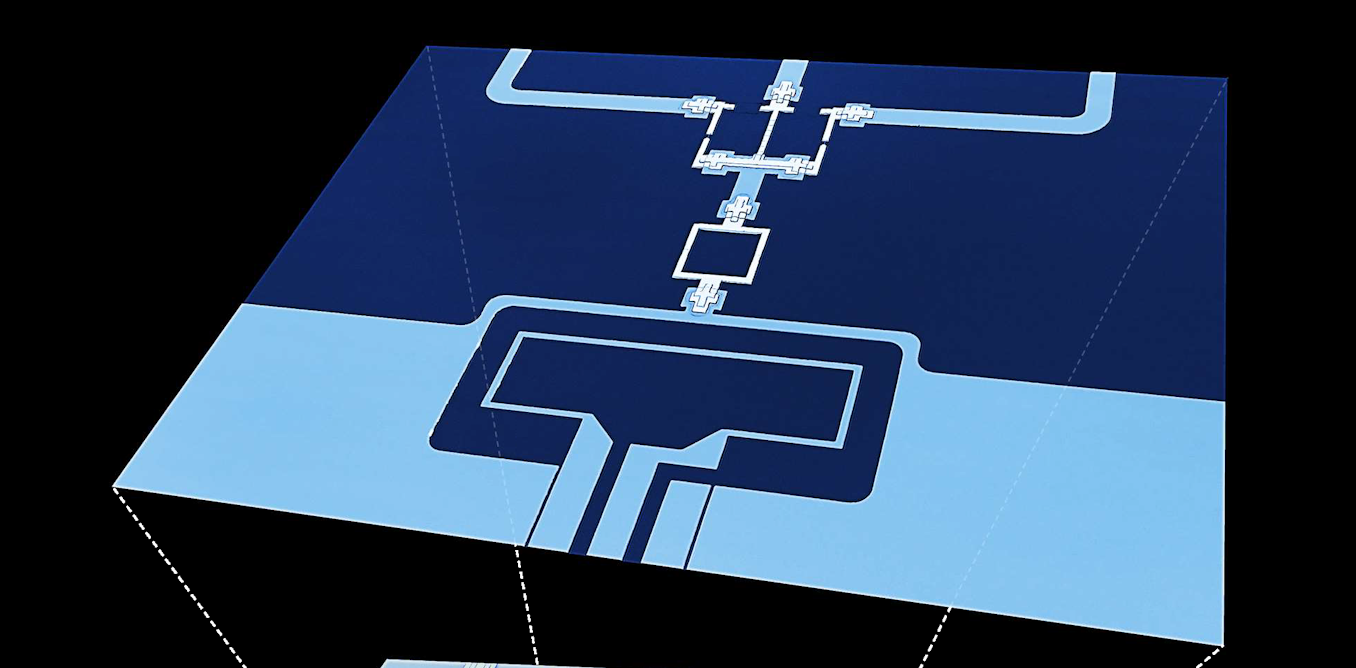
The 2025 Nobel Prize in Physics has been awarded to three scientists for their groundbreaking research in superconducting circuits, a significant advancement that has propelled the field of quantum technology. The laureates, John Martinis, Michel Devoret, and John Clarke, demonstrated that quantum effects can persist in large electrical circuits, opening the door to practical applications in quantum computing.
Quantum mechanics governs the bizarre behavior of microscopic particles, offering unique capabilities for computation. This allows researchers to tackle complex problems across various fields, including chemistry and cryptography, that traditional computers struggle to solve. The development of effective quantum technologies is crucial for realizing the promise of quantum computing.
In their seminal work during the mid-1980s, Martinis, Devoret, and Clarke showed that even sizable electrical circuits could exhibit quantum characteristics. Their experiments utilized circuits made from niobium and lead, which become superconductors when cooled to just above absolute zero. These materials allow electric currents to flow without heat loss, demonstrating that voltages and currents in superconductors are dictated by quantum mechanics.
The significance of this research lies in its implications for superconducting circuits. These circuits can be conceptualized similarly to single quantum particles, a simplification that enhances their utility as a technology. Today, superconducting circuits are employed in various applications, including fundamental quantum physics studies, physical system simulations, and advanced sensing protocols.
Applications of Superconducting Circuits
One notable achievement is the development of a near-ideal microwave amplifier by the Devoret group, which is crucial for communications and scientific instrumentation. Martinis’ team has leveraged superconducting circuits to emulate electron-like particles, a technique vital for exploring fundamental physics. My own research group has successfully utilized superconducting circuits to establish a protocol for measuring magnetic fields with precision exceeding standard techniques.
The primary application of superconducting circuits is as a platform for quantum computing. These circuits enable the interaction and entanglement of multiple quantum systems, allowing them to function as a cohesive unit. The power of quantum computers stems from their ability to utilize quantization, superposition, and entanglement, which differentiates them from classical computing technologies.
In quantum computing, researchers utilize quantum bits, or qubits, which exist in two states. To be effective, qubits must maintain coherence, meaning their states should remain stable. They should also be controllable, allowing for state changes and interactions with other qubits. Scalability is another essential factor, as it is necessary to produce a significant number of qubits.
While various technologies, such as trapped atoms and ions, show promise, each comes with trade-offs regarding coherence, controllability, and scalability. The adaptability and predictability of superconducting circuits position them as a leading choice, enabling researchers to tailor qubit behaviors to meet specific needs.
Legacy and Future of Quantum Research
The contributions of the Nobel laureates extend well beyond their initial discoveries. Martinis has played a pivotal role in the Google quantum processor initiative and currently leads his own enterprise. Devoret continues to work with Google, while Clarke, now retired, has focused his later career on quantum circuits. Their impact resonates throughout the quantum research community, influencing countless careers.
Reflecting on the importance of mentorship, Devoret made a poignant remark during a panel discussion: selecting an academic adviser can be more impactful than choosing a spouse, given the lasting influence they have in one’s career. Many researchers in the field of quantum superconductors can trace their academic lineage back to Clarke, underscoring his significant role in shaping the discipline.
As the Nobel Prize celebrates the achievements of Martinis, Devoret, and Clarke, their legacy inspires current and future researchers to push the boundaries of knowledge in quantum technology. The ongoing efforts of academic institutions and private enterprises aim to transform these foundational discoveries into practical quantum processors, paving the way for a new era of computational capability.
-

 World1 week ago
World1 week agoPrivate Funeral Held for Dean Field and His Three Children
-

 Top Stories2 weeks ago
Top Stories2 weeks agoFuneral Planned for Field Siblings After Tragic House Fire
-

 Sports3 months ago
Sports3 months agoNetball New Zealand Stands Down Dame Noeline Taurua for Series
-

 Entertainment3 months ago
Entertainment3 months agoTributes Pour In for Lachlan Rofe, Reality Star, Dead at 47
-

 Entertainment2 months ago
Entertainment2 months agoNew ‘Maverick’ Chaser Joins Beat the Chasers Season Finale
-

 Sports3 months ago
Sports3 months agoSilver Ferns Legend Laura Langman Criticizes Team’s Attitude
-

 Sports1 month ago
Sports1 month agoEli Katoa Rushed to Hospital After Sideline Incident During Match
-

 World2 weeks ago
World2 weeks agoInvestigation Underway in Tragic Sanson House Fire Involving Family
-

 Politics2 months ago
Politics2 months agoNetball NZ Calls for Respect Amid Dame Taurua’s Standoff
-

 Top Stories2 weeks ago
Top Stories2 weeks agoShock and Grief Follow Tragic Family Deaths in New Zealand
-

 Entertainment3 months ago
Entertainment3 months agoKhloe Kardashian Embraces Innovative Stem Cell Therapy in Mexico
-

 World4 months ago
World4 months agoPolice Arrest Multiple Individuals During Funeral for Zain Taikato-Fox



